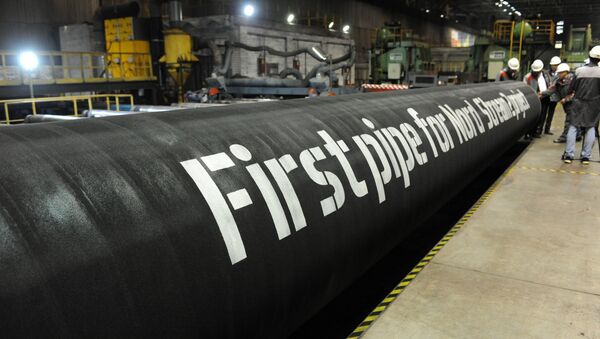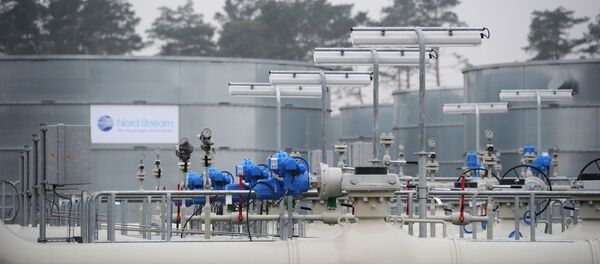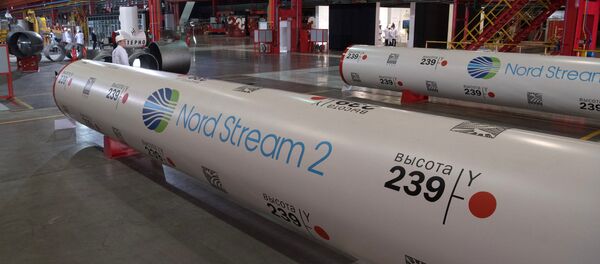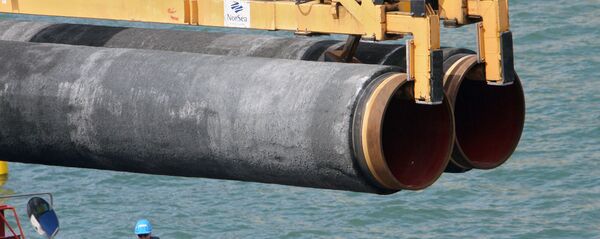Earlier, the European Commission said that talks were necessary to discuss with Russia a special legal regime for the underwater leg of the pipeline. Meanwhile, German Chancellor Angela Merkel said that a special EU mandate for talks on the construction of Nord Stream 2 was not necessary, but added that several legal issues remain to be clarified.
"The final decision is not expected by the summer recess, the discussion will continue in September," the source said.
The EU will continue discussing the matter at a working level. According to the source, the next meeting is expected to take place in mid-July.
Earlier, the European Commissioner for Energy Union, Maros Sefcovic, said that the EU energy ministers upheld the European Commission’s approach to the establishing of a special legal regime for the Nord Stream 2 operation.
"Just presented our proposal on the Nord Stream mandate to EU Energy Ministers. First debate showed strong support for our approach," Sefcovic wrote on Twitter following the Transport, Telecommunications and Energy Council on Monday.
Vladimir Rozhankovskiy, a senior analyst with investment company Gorizont, suggested that the decision by Brussels is related to sanctions currently discussed by the United States Senate against the companies participating in the project.
"All of these are like links in a chain. There is a tug of war between the United States presidential administration and Senate. In fact, the position of the White House is close to that of Brussels. Actually, this entire situation is politically biased. American lawmakers are deciding on their stance [towards Nord Stream 2]. There is a behind-the-scene struggle underway," Rozhankovskiy told Radio Sputnik.
In mid-May, the US Senate voted in favor of new sanctions against Russia over its alleged interference in the US presidential election in 2016. In particular, sanctions included the companies participating in the construction of Nord Stream 2. The bill is yet to be approved by both the House of Representatives and the administration of US President Donald Trump.
"Finally one of the sides will manage to get what it wants. I guess that if the Senate greenlights Nord Stream 2 but continues the Russia probe, the European Union will quickly sign all the necessary documents on the pipeline and its construction will start," the expert said.
Thus, according to Rozhankovskiy, the implementation of Nord Stream 2 will first of all require a consensus between Washington and Brussels.
"There is a game of chicken between the parties involved. They want to test each other and see what position each of them will take. On the one side are the Senate and White House, on the other side – Europe. Until there is consensus between them nothing will work out," the analyst said.
An agreement on Nord Stream 2, involving the expansion of the Nord Stream gas pipeline, was signed in early September 2014, during the Eastern Economic Forum in Russia’s Vladivostok. Nord Stream 2 is planned to become operational in 2019.
The Nord Stream 2 project presumes the construction of two gas pipelines with a combined annual capacity of 55 billion cubic meters of gas. The new pipeline is planned to be laid along the Nord Stream pipeline route from the Russian coast through the Baltic Sea to a hub in Germany. The launch of the pipeline is scheduled for 2017. Shell, Engie, OMV, Uniper and Wintershall are Gazprom's partners on the project.




